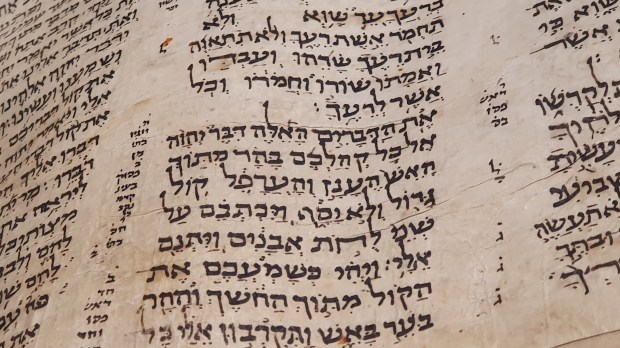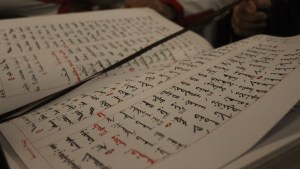The Codex Sassoon is around 1,000 years old. A century older than the famed Leningrad Codex, the Sassoon is closer in age to the Aleppo Codex, which dates to around the year 930. However, the Codex Sassoon is incomplete: It’s missing eight parchment leaves – which is not that much. In fact, this does not affect its value at all. According to Sotheby’s, the codex is about to become “the most valuable historical document ever sold at auction.” As read in the note published by Medievalists.net, the auction will take place this coming May 17.
Expected to be sold for somewhere around $50 million, the Codex Sassoon could be the most expensive medieval manuscript ever sold. It has a complex history.
According to Smithsonian Magazine, “historians say a scribe wrote out the text on roughly 400 sheets of parchment in the late 9th or early 10th century. Eventually, the book landed at a synagogue in present-day Syria, which was then destroyed around the 13th or 14th century.”
“The Hebrew Bible is the sacred, foundational text for peoples across the globe,” says Sharon Mintz, Sotheby’s Senior Judaica Specialist, Books & Manuscripts, quoted by Medievalists.net. “For thousands of years, the faithful have closely studied, analyzed, meditated on, and delved into the Holy Scriptures — it is the first book of the People of the Book — to acquire wisdom and attain spiritual enlightenment. In Codex Sassoon, a monumental transformation in the history of the Hebrew Bible is revealed, bringing to light the full story of the Hebrew Bible that had previously never been presented in book form. Codex Sassoon marks a critical turning point in how we perceive the history of the Divine word across thousands of years, and is a transformative witness to how the Hebrew Bible has influenced the pillars of civilization–art, culture, law, politics—for centuries.”
The codex was preserved, according to notes found in the codex itself, by Salama bin Abi al-Fakhr. He was supposed to keep the book safe until the synagogue was rebuilt. But reconstruction works never begun, and the codex disappeared for the next 600 years until it was “rediscovered” in 1929 by a British collector, David Solomon Sassoon, who bought it for £350.
The document remained with Sassoon’s heirs until 1978, when the British Rail Pension Fund purchased it for $320,000. It was bought in 1989 by Swiss collectior Jacqui Safra, who paid $3.19 million.
Sarah Kuta’s article in Smithsonian Magazine notes that the Codex Sassoon has long held a “revered and fabled place in the pantheon of surviving historic documents and is undeniably one of the most important and singular texts in human history.”



